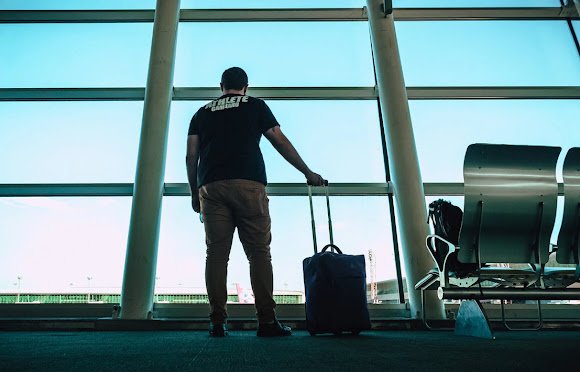Skip Lagging: The Passenger's Gamble
Airlines strongly discourage "skip-lagging." While skip-lagging is not illegal, major airlines like American, Delta, Southwest, and United explicitly prohibit it.
Shifting gears from cockpit chaos to passenger shenanigans, let's talk about "skip lagging." The art of booking a flight with a layover and conveniently 'missing' the second leg, saving a few extra bucks. Enter American Airlines, playing no-nonsense referee to this game. The crackdown on skip lagging has escalated, with fines reaching up to $2500 and passengers being unceremoniously booted from frequent flyer programs. It's a risky gamble, and American Airlines is standing firm against this clever travel hack.
In fact, a recent incident involved a teenager who had his ticket canceled for planning to disembark during a layover in Charlotte, bypassing the final stretch to New York City. It's a cautionary tale for those tempted to play the skip-lagging game.
Why do Airlines disapprove? One primary reason for airlines' disapproval is the financial loss incurred. Tim Huh, a professor at the University of British Columbia's Sauder School of Business, explains that non-direct flights have a lower price ceiling compared to direct flights to attract customers. When a passenger skips the final leg, the airline can't sell that seat separately at a potentially higher price, resulting in a significant loss.
Huh notes that airlines typically sell a seat with a high probability that the passenger will show up. Failure to board a connecting flight can lead to confusion and delays at the gate, as airlines make announcements trying to locate missing passengers.
For passengers engaging in skiplagging, there are risks involved. If an airline discovers this practice, they might cancel the ticket or even ban the passenger. Recently, a North Carolina teen faced a three-year ban from American Airlines after disembarking at his Charlotte connection instead of continuing to New York. Airlines may take further steps, such as demanding payment if skip-lagging becomes a repeated offense.
There are additional drawbacks highlighted by industry expert Henry Harteveldt. Even if skip-lagging is initially successful, it tends to work better for one-way travel. Once the airline realizes that a passenger didn't complete the entire journey, they are likely to cancel the return portion of the ticket.
In essence, while skip-lagging might seem like a money-saving strategy, the risks involve potential bans, ticket cancellations, and financial penalties if the airlines catch on. As airlines continue to crack down on this practice, passengers should be aware of the consequences and consider alternative ways to save on airfare that align with airlines' policies.
So, whether you're buckled into a seat or serving coffee at 30,000 feet, remember to stay curious, stay courteous, and maybe double-check your travel strategies. our next journey together, this is Regina, your friendly sky companion, signing off. Fly high, stay safe, and may your adventures be as thrilling as the tales we share above the clouds! ✈️🌍





Comments
Post a Comment